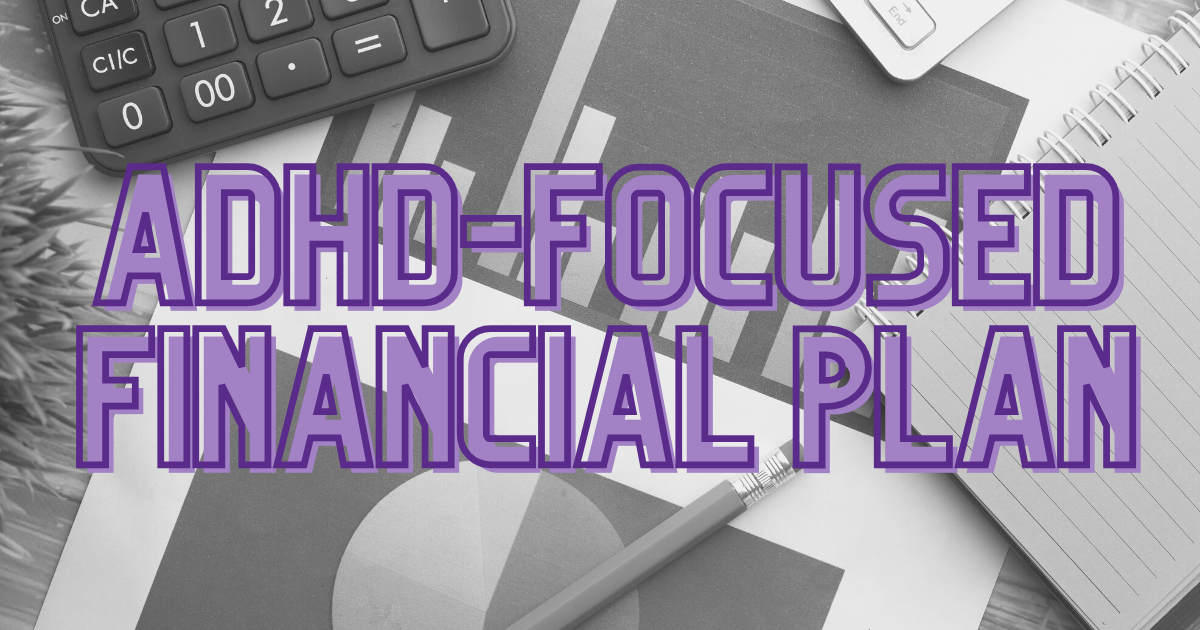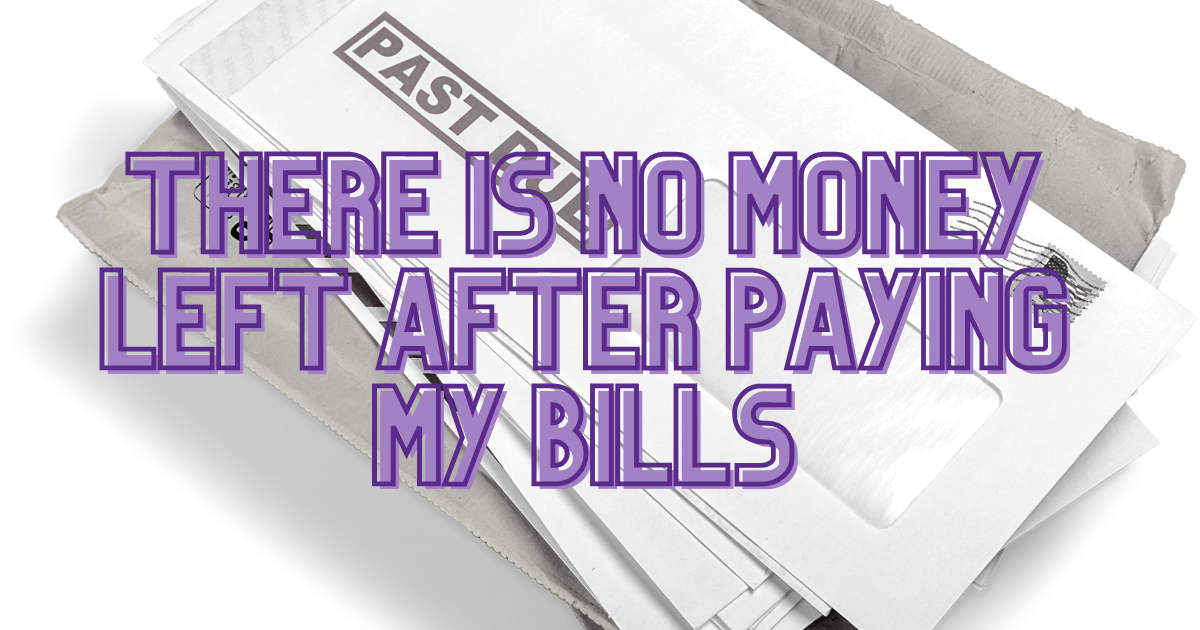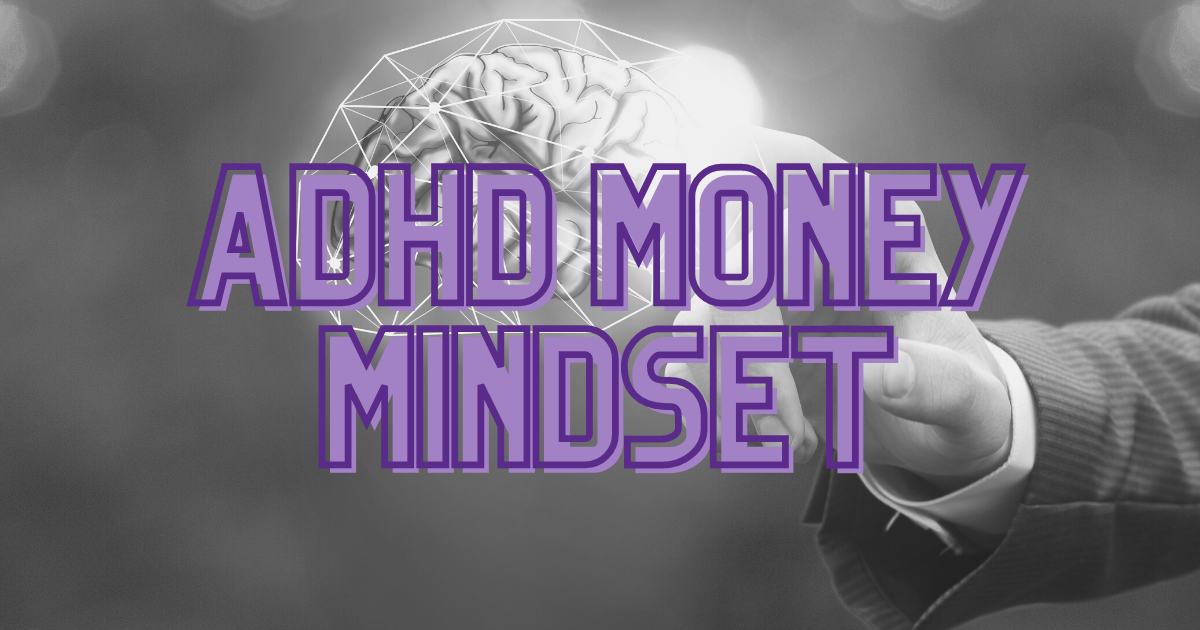You need an ADHD-Specific Financial Plan!
I know. You have ADHD, and I'm telling you to have a plan. Jokes on me, right? And I get it. Because your glorious brain works the way it does,...
Today is the day.
–The day your budget supports your life; your ultimate ‘Why’.
–The day you start to make finances a choice.
–The day you learn to love your budget.
Suspicious? Maybe you are thinking that:
I won't follow through.
I don’t want to deprive myself.
I don’t know how.
I get it. And I am here to tell you that you can do this! And it all goes back to your ‘Why’ (Don't know what I’m talking about? See my last blog, listen to this podcast, or order my free ebook for more on your ultimate ‘Why’).
You know your goals, and you know that you want to reach them. They are important to you. You look at them every day, and you daydream. About the new house. The vacation. Retirement. You know that organizing your money isn’t about depriving yourself; it’s about streamlining your finances so you can get what you really want out of life.
And that is all a budget is. A tool to get more of a return out of life. Chelsea Brennan (Smart Money Mamas) says that Money is a true form of self-care. Yes!
Having a budget equals
–Less stress.
–More out of life.
–And tangible, measurable movement towards your life's goals.
Self-care in its truest form.
Start by thinking about yourself as a business. You want to spend less than you earn.
Having a budget means:
–Knowing in advance how much you have to spend.
–Thinking about upcoming expenses and factoring them in.
–Reviewing the budget at the end of each month and making changes and observations; and talking about it with your accountability partner.
Let's make this easy and start with small goals. And remember, in the beginning your goal may be to simply break even. That's ok!
Add up all of your fixed monthly income. This includes:
–Rent or your mortgage.
–Utilities.
–Car payments.
Divide up any quarterly bills, such as taxes, and add them up. If the bills change monthly, use a high estimate. The exception is your credit cards, only pay the minimum due (don’t worry; we will go into paying off debt soon). Add it all up and subtract it from your monthly pay. The leftover money is your discretionary income.
Now add up your discretionary costs. Keep it simple. I recommend 4 groups.
–Shopping/fun.
–Groceries/essentials (like gas).
–Eating out.
–Miscellaneous (the leaky pipe).
Every night before you go to bed write down and categorize your spending for the day. Rounding is fine; the key is to keep it simple. Do this every night for a month. By hand. Remember the studies about how writing things down by hand grows new neural pathways?1
Next? Add it all up and see where your money goes! Are you spending $10 a day on coffee? How about eating out? Look at each of these categories and decide if the money being spent is in alignment with your ultimate ‘Why’. And turn the next month into a game. Where can you save? What small sacrifices are you making that bring you closer to your life goals?
Do you want to toss in an app? I personally love HoneyDue. It is easy to use and you can join with your significant other, so accountability is easy. Don’t let this replace pen and paper (neurons), but do use it as a helpful tool. I personally love that my partner and I can hold each other accountable! It also has a chat option; this makes it really easy to keep money conversations out of your dinner talk.
Having a budget will simplify your life, and make working towards your dreams a daily ritual. Welcome to a life centered around investing in yourself and your future!
Questions? Suggestions? Would you like to know more?
Sign up for my free newsletter and receive my ADHD Money Mastery Ebook here!
Check out my podcast here.
Schedule a discovery session here.
Follow me on Instagram here

I know. You have ADHD, and I'm telling you to have a plan. Jokes on me, right? And I get it. Because your glorious brain works the way it does,...

A podcast listener recently asked me this question. "What does one do if, after adding up fixed expenses, there is no money leftover and nothing to...

Let's start with: not everything you think is true (honestly? This blew my mind).